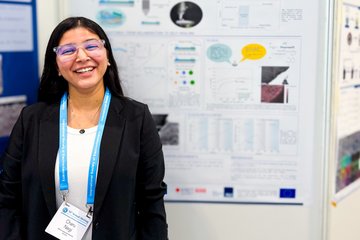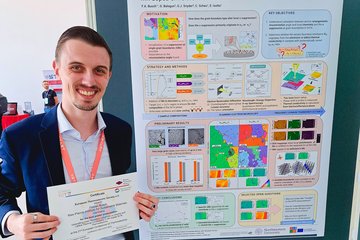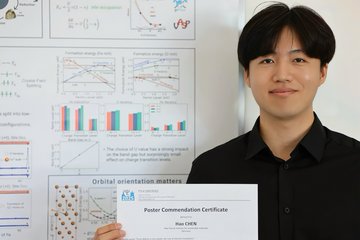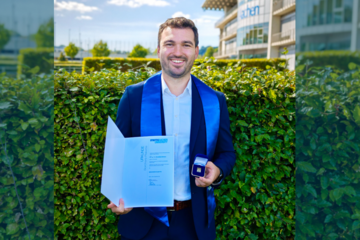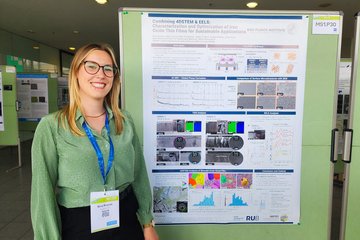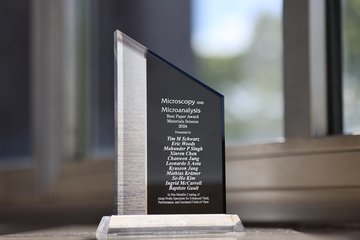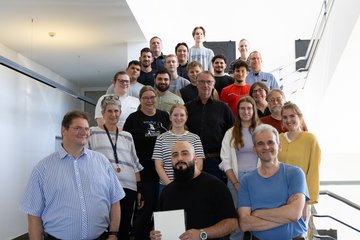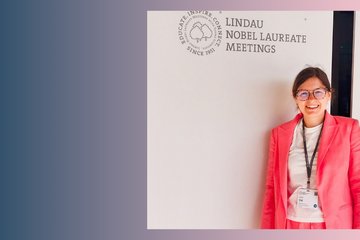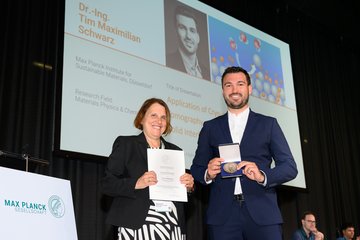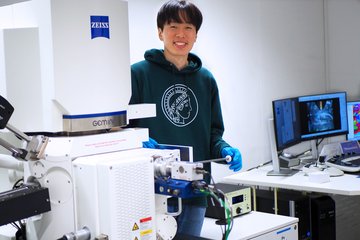All genres
281.
Journal Article
Hydrogen Adsorption on polar ZnO(0001)–Zn: Extending equilibrium surface phase diagrams to kinetically stabilized structures. Physical Review B 82 (16), 165418 (2010)
282.
Journal Article
Ab Initio Guided Design of bcc Ternary Mg–Li–X (X=Ca,Al,Si,Zn,Cu) Alloys for Ultra-Lightweight Applications. Advanced Engineering Materials 12 (7), pp. 572 - 576 (2010)
283.
Journal Article
L21-ordered Fe–Al–Ti alloys. Intermetallics 18 (7), pp. 1360 - 1364 (2010)
284.
Journal Article
Native and hydrogen-containing point defects in Mg3N2: A density functional theory study. Physical Review B 81, 224109, pp. 1 - 10 (2010)
285.
Journal Article
Combined ab initio and experimental study of structural and elastic properties of Fe3Al-based ternaries. Intermetallics 18, pp. 1310 - 1315 (2010)
286.
Journal Article
Ab initio study of the anomalous volume-composition dependence. Intermetallics 18, pp. 1316 - 1321 (2010)
287.
Journal Article
Rescaled Monte Carlo approach for magnetic systems: Ab initio thermodynamics of bcc iron. Physical Review B 81 (13), pp. 134425 - 134434 (2010)
288.
Journal Article
Plane-wave implementation of the real-space k.p formalism and continuum elasticity theory. Computer Physics Communications 181 (4), pp. 765 - 771 (2010)
289.
Journal Article
Ab initio study on the solubility and kinetics of hydrogen in austenitic high Mn steels. (submitted)
290.
Journal Article
Generation and performance of special quasirandom structures for studying the elastic properties of random alloys: Application to Al–Ti. Physical Review B 81 (9), pp. 094203-1 - 094203-7 (2010)
291.
Journal Article
Revealing the Design Principles of High-Performance Biological Composites Using Ab initio and Multiscale Simulations: The Example of Lobster Cuticle. Advanced Materials 22 (4), pp. 519 - 526 (2010)
292.
Journal Article
Thermodynamic properties of cementite (Fe3C). CALPHAD: Computer Coupling of Phase Diagrams and Thermochemistry 34, pp. 129 - 133 (2010)
293.
Journal Article
Polarization-induced charge carrier separation in polar and nonpolar grown GaN quantum dots. Journal of Applied Physics 106, pp. 083707-1 - 083707-7 (2009)
294.
Journal Article
The Effect of Disorder on the Concentration-Dependence of Stacking Fault Energies in Fe1-xMnx – A First Principles Study. Steel Research International 80 (9), pp. 603 - 608 (2009)
295.
Journal Article
Temperature Stabilized reconstructions at polar ZnO(0001). Physical Review Letters 103 (6), 065502 (2009)
296.
Journal Article
Interplay between long-range elastic and short-range chemical interactions in Fe–C martensite formation. Physical Review B 79 (22), pp. 224112-1 - 224112-5 (2009)
297.
Journal Article
Large anisotropic adatom kinetics on nonpolar GaN surfaces: Consequences for surface morphologies and nanowire growth. Physical Review B 79, pp. 241308-1 - 241308-4 (2009)
298.
Journal Article
Direct minimization technique for metals in density-functional theory. Physical Review B 79, 241103(R), pp. 1 - 4 (2009)
299.
Journal Article
Pressure dependence of the Curie temperature in bcc iron studied by ab initio simulations. Physical Review B 79, 184406, pp. 184406-1 - 184406-5 (2009)
300.
Journal Article
Enhancing nitrogen solubility in GaAs and InAs by surface kinetics: An ab initio study. Physical Review B 79, 155311, pp. 155311 - 155323 (2009)

